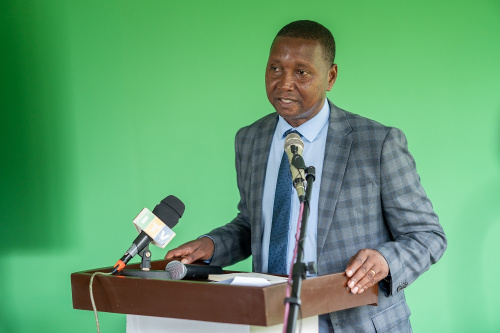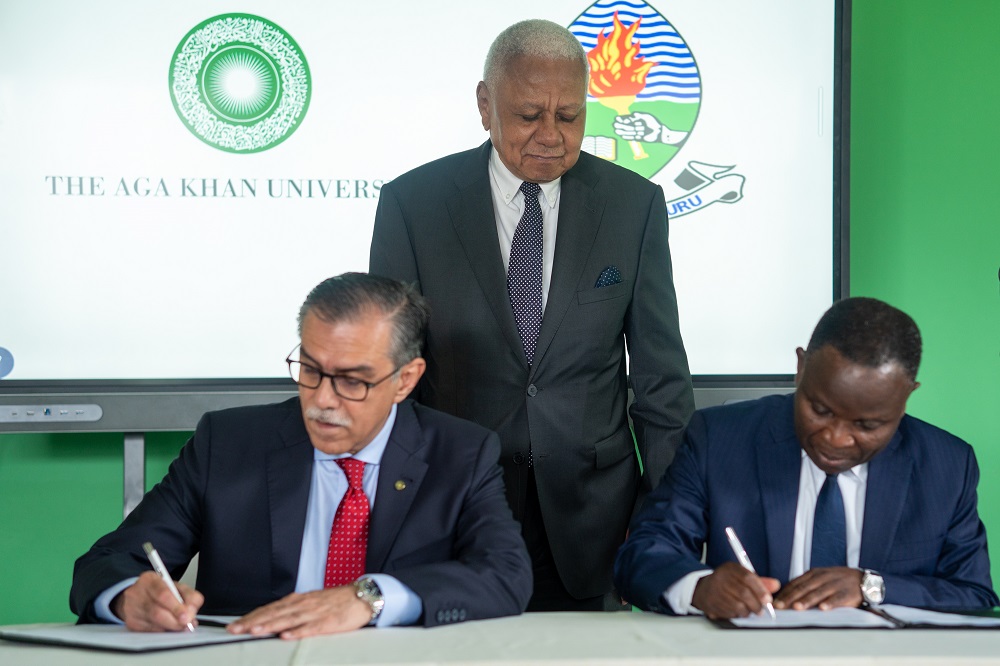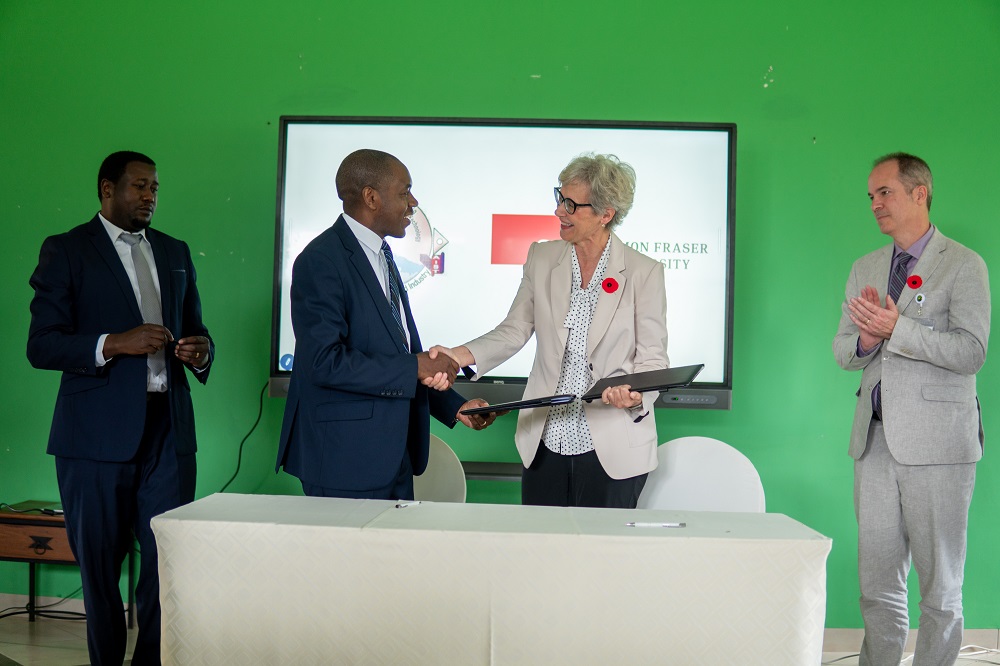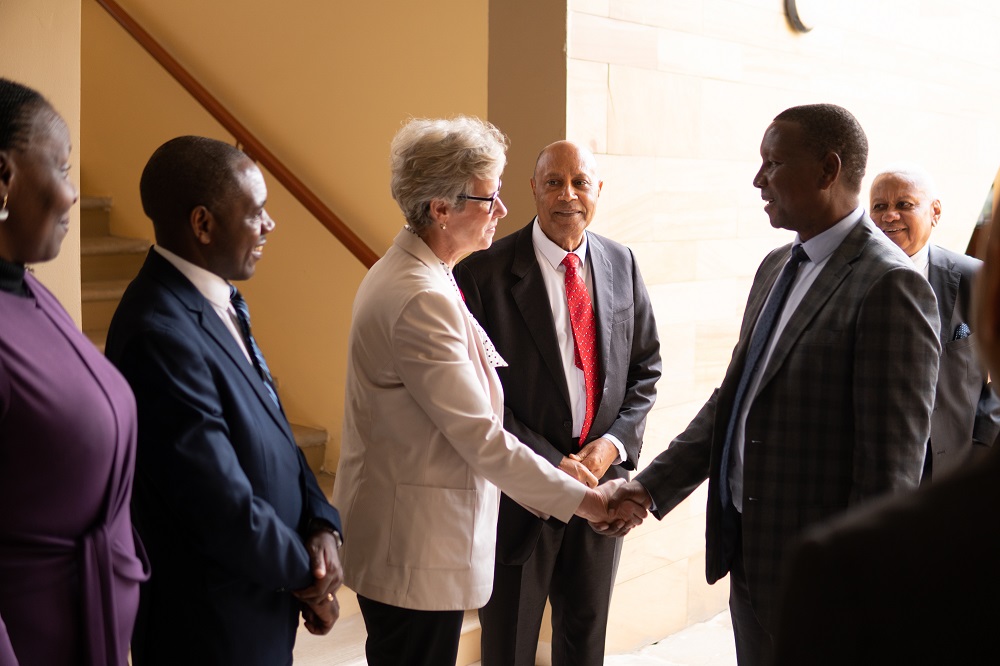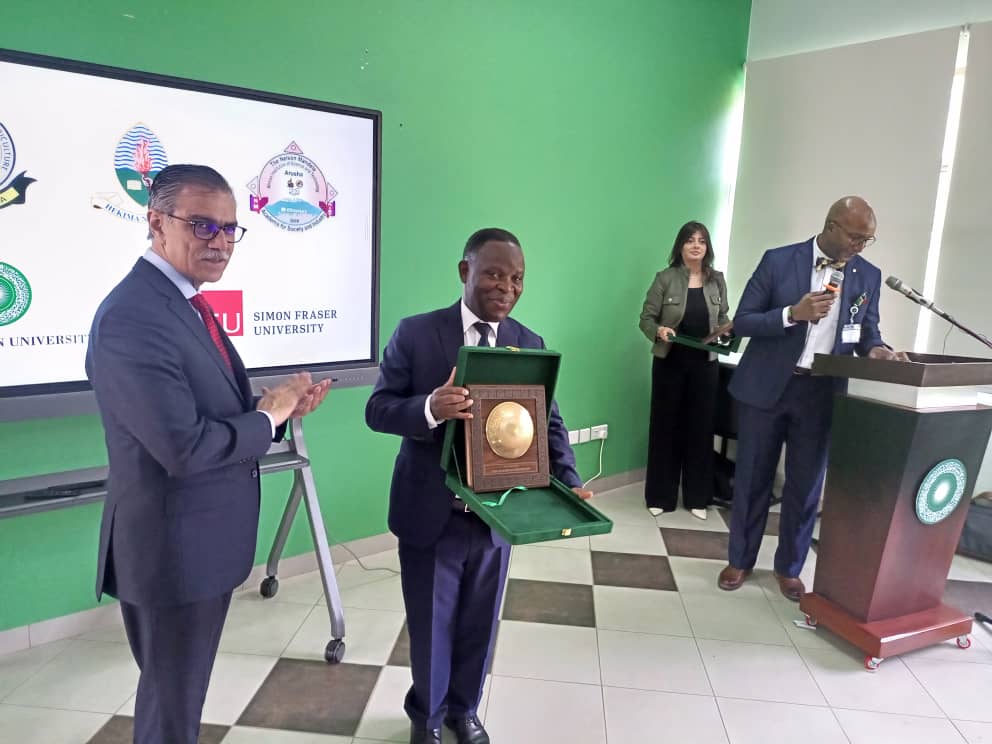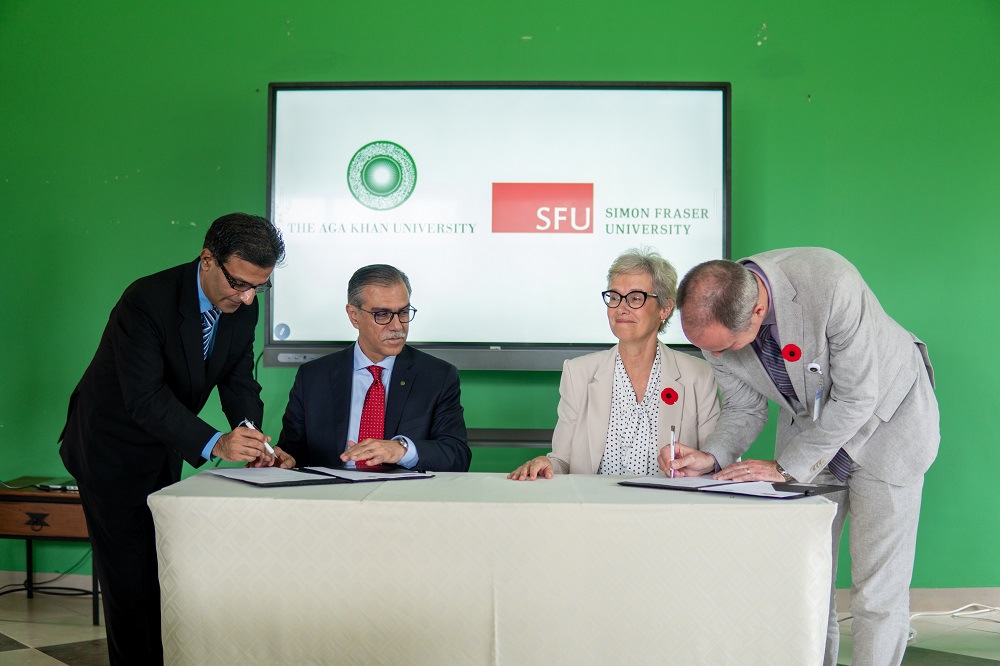News
Prof. Mkenda lauds UDSM and other varsities collaboration to address society challenges
By Jackson Isdory, CMU
In a landmark event at the Aga Khan University Community Centre in Arusha, the Minister for Education, Science, and Technology, Hon. Prof. Adolf Mkenda (MP), applauded the University of Dar es Salaam and other higher learning institutions for significant strides in fostering collaborations with local and international institutions.
Minister Mkenda said this at the occasion of signing of Memoranda of Understanding (MoUs) between Agha Khan University (AKU) and a consortium of esteemed Tanzanian and Canadian institutions, on collaboration aimed at addressing challenges posed by climate change through comprehensive environmental research initiatives.
The institutions that signed MoUs with AKU included University of Dar es Salaam (UDSM), Sokoine University of Agriculture (SUA), Nelson Mandela African Institution of Science and Technology (NM-AIST) and Simon Fraser University (SFU).
Minister Mkenda said that the collaborations were very critical in a country like Tanzania where a substantial majority of the population relied on agriculture.
"About two-thirds of our population depend on agriculture, and climate change makes it difficult to guarantee food security and livelihoods. We believe that scientists can do a lot to minimise this impact and maybe, in the long run, solve the problems”, said Prof. Mkenda.
The Minister assured institutions of the commitment of government under the leadership of H.E. Dr. Samia Suluhu Hassan, President of the United Republic of Tanzania, “of facilitating and supporting collaborations, and aligning them with their objectives and the betterment of the society”.
According to the details available, the signed MoUs encompassed various objectives, including establishing enduring relationships in research, fostering institutional development, and building capacities.
“The collaborations aim to promote joint research endeavours focused on climate change adaptation and vulnerability assessments, specifically targeted to benefit local communities and the broader Tanzanian populace”, stated the documents in part.
The partnerships also sought to intertwine natural resources, human and animal health, and the environment through the innovative 'One Health' concept.
Universities’ pledge for commitment
Speaking at the ceremony, the Vice Chancellor of the University of Dar es Salaam, Prof. William A. L. Anangisye, expressed his enthusiasm for the collaboration, and said it was not the first time UDSM was partnering with AKU for valuable purposes.
“We have been collaborating with AKU and the other three universities in different ways, so today we are just formalising our partnership. We are indeed going to use all our efforts to successfully meet all the intended objectives of this partnership”, said Prof. Anangisye.
He reiterated that, the partnership was in line with UDSM Vision 2061 that encompassed a commitment to internationalisation, which entailed making the university "a hub of research, teaching, innovation, and knowledge exchange”.
Meanwhile, AKU President Sulaiman Shahabuddin highlighted that the signing of the MoUs was the beginning of a new era defined by two important things.
“One, the search for solutions to the problem of climate change and environmental sustainability and, two, a commitment to partnering with institutions that share our desire to generate new knowledge that helps the people of Tanzania and East Africa to thrive on a warming planet”, he said.
Collaboration with shared values
NM-AIST Chancellor Issa Omari emphasised the importance of shared values in building partnerships as it was like fostering friendships between individuals built on shared values, such as focusing on empowering the society by providing solutions that help it.
As part of the collaboration, AKU is running the first cohort of a field school for students from SFU to investigate the impact of climate change on communities. SFU President Joy Johnson expressed her excitement about the unique opportunity for students to study in Tanzania and engage with the local community to advance climate education and community resilience.
UDSM Chief Corporate Counsel and Secretary to Council Prof. Saudin Mwakaje said the occasion was a momentous one for both UDSM and AKU given its focus areas of cooperation, including research projects, field schools, and internship programmes on climate and environmental research.
“The MoU indicates that now our institutions mark the beginning of formal collaboration. Our focus areas of cooperation are on research projects, field schools, and the internship programmes on climate and environmental research," he stated.
The collaboration between UDSM and AKU is poised to contribute significantly to global efforts in tackling the impact of climate change through innovative research initiatives and knowledge exchange.
Other News
Sun, 10.Nov.2024 : UDSM na UH vyafanikisha upatikanaji wa Kamusi ya Kihispania-KiswahiliFri, 08.Nov.2024 : UDASA Bonanza 2024 picks up vibes
Fri, 01.Nov.2024 : Robotics Bootcamp attracts hundreds of young talents to UDSM, sparks passion for Physics and Technology
Wed, 30.Oct.2024 : Dr. Jackson Justo drives AI-powered energy innovations for sustainable future
Thu, 24.Oct.2024 : Partnership with NMB promises innovation, talent development and digital transformation at UDSM
Wed, 09.Oct.2024 : Economics don Dr. Innocensia John is named among 2024 top Agri-Food Pioneers
Tue, 08.Oct.2024 : School of Mines and Geosciences gears up for Helium exploration in Tanzania
Sat, 05.Oct.2024 : UDSM students excel in 2024 NGEA Award Regional Challenge


